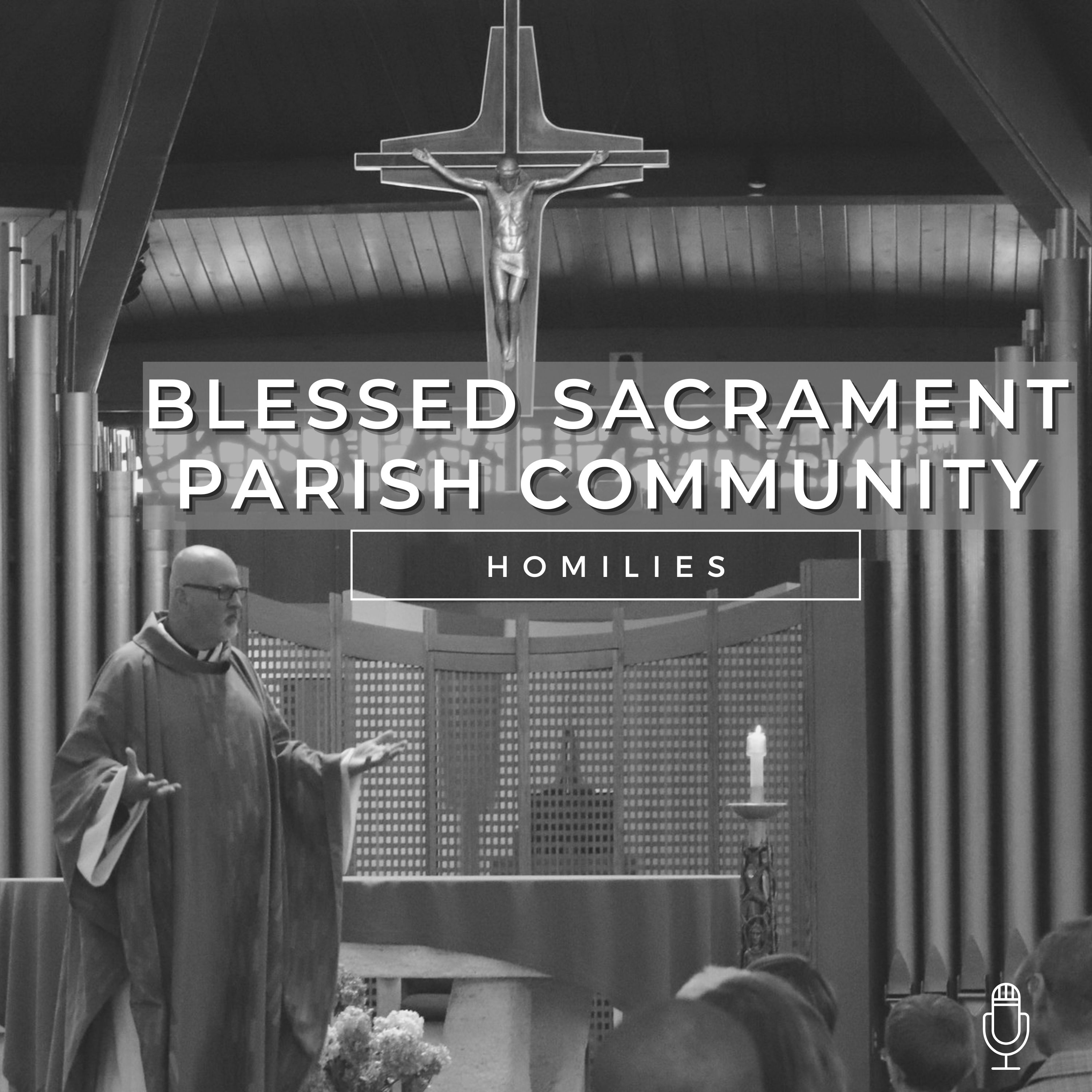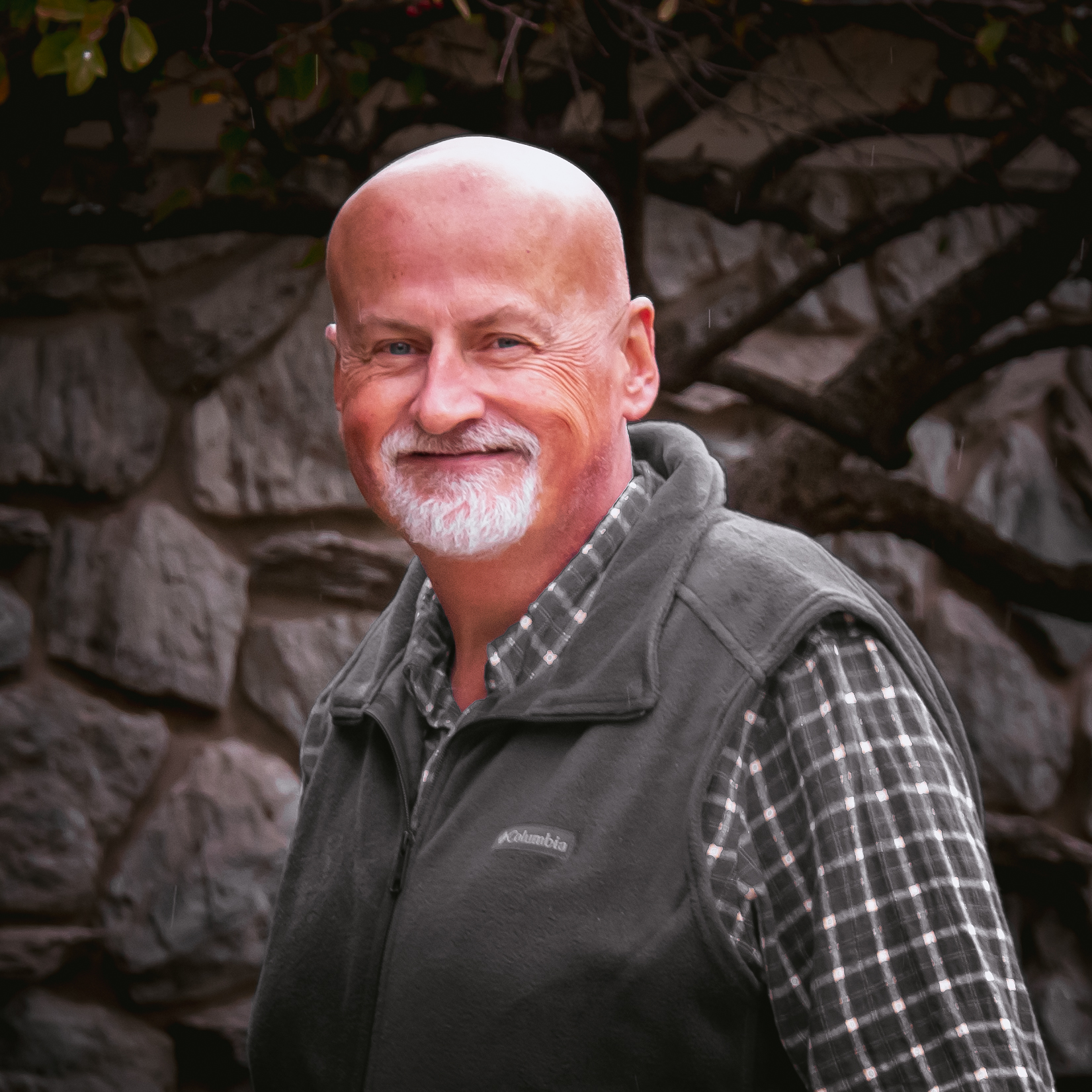Episode Transcript
[00:00:12] Speaker A: Welcome to the Blessed Sacrament Homilies podcast where our mission is to help everyone recognize and experience the presence of God. We hope you are nourished and encouraged by the Word. Thank you for joining us.
[00:00:25] Speaker B: The Lord be with you and with your spirit. Reading from the Holy Gospel according to John Glory to you, O Lord. At that time, Jesus revealed himself again to his disciples at the Sea of Tiberias. He revealed himself in this way. Together were Simon Peter, Thomas called Didymus, Nathanael from Cana in Galilee, Zebedee's sons, and two other of his disciples.
Simon Peter said to them, I am going fishing.
They said to him, we also will come with you. So they went out and got into the boat. But that night they caught nothing.
When it was already dawn, Jesus was standing on the shore. But the disciples did not realize that it was Jesus.
Jesus said to them, children, have you caught anything to eat?
They answered him, no.
So he said to them, cast the net over the right side of the boat and you will find something.
So they cast it and were not able to pull it in because of the number of fish.
So the disciple whom Jesus loved said to Peter, it is the Lord.
When Simon Peter heard that it was the Lord, he tucked in his garment, for he was lightly clad and jumped into the sea.
The other disciples came in the boat, for they were not far from shore, only about a hundred yards, dragging the net with the fish.
When they climbed out on shore, they saw a charcoal fire with fish on it and bread.
Jesus said to them, bring me some of the fish you just caught.
So Simon Peter went over and dragged the net ashore full of 153large fish.
Even though there were so many, the net was not torn.
Jesus said to them, come have breakfast.
And none of the disciples dared to ask him, who are you? Because they realized it was the Lord.
Jesus came over and took the bread and gave it to them. And in a like manner, the fish.
This is now the third time Jesus was revealed to his disciples after being raised from the dead.
When they had finished breakfast, Jesus said to Simon Peter, simon, son of John, do you love me more than these?
Simon Peter answered him, yes, Lord, you know that I love you.
Jesus said to him, feed my lambs.
He then said to Simon Peter a second time, simon, son of John, do you love me? Simon Peter answered him, yes, Lord, you know that I love you.
Jesus said to him, tend my sheep.
Jesus said to him a third time, simon, son of John, do you love me?
Peter was distressed that Jesus had said to him a third time, do you love me. And he said to him, lord, you know everything.
You know that I love you.
Jesus said to him, feed my sheep.
Amen. Amen. I say to you, when you are younger and you used to dress yourself and go where you wanted, but when you grow old, you will stretch out your hands and someone else will dress you and lead you where you do not want to go.
He said this to signify by what kind of death he would glorify God.
And when he had said this, he said to him, follow me, the Gospel of the Lord. Praise to you, Lord Jesus Christ. There's always been a big debate on child development. What affects us more? Is it nature, our genetics, or is it nurture? How we're raised and how we're loved or not loved.
And I think it's definitely a mixture of both, because there are some things that must be written in our genetic code.
And one of them that I've convinced myself is written in every child's genetic code is a recognition from a very young age that if they're about to get in a lot of trouble, their immediate response is, I love you, Daddy, or I love you, Mommy. It's almost like a get out of jail free card. At least that's what most children think.
Unless you had a parent like I did, my dad, who would respond back with actually what was pretty good, he'd say, I know you love me. Try to show me sometime.
Then you knew you weren't going to get away with what it was you were doing.
Well, in this Gospel, we have this encounter between Simon Peter and Jesus, and in it we see a whole bunch of dynamics that are happening here.
We see Jesus trying to prepare Peter for what he was going to face that being a true disciple in the world was going to mean. There are some difficult moments ahead. And in fact, we already know that he was crucified himself for his faith.
And we also see Simon Peter getting stretched a little bit, going beyond where he was necessarily comfortable and recognizing that that was exactly what he needed to do. And also recognizing that the more Jesus would stretch him and make him be his best, the more also that Jesus would be with him to get him through whatever it is he faced.
So here in that encounter, we see Jesus look him right in the eye and say, hey, do you love me, Simon Peter?
And Simon Peter looks back at him. He says, lord, I'm your best friend. You know that?
Thinking he just got away with something, in other words, saying, daddy, I love you.
So Jesus isn't quite satisfied with that answer. So he presses him a second time.
Simon, son of John, do you love me? Oh, come on, Jesus, you know I'm your friend.
Nope, not good enough.
So he asks him a third time. And the scripture says he was distressed that Jesus asked him a third time. Well, he wasn't distressed because Jesus asked him.
[00:07:28] Speaker A: He.
[00:07:28] Speaker B: He was distressed because he was getting pushed to give an answer he wasn't sure he could give, that he loved him unconditionally.
But by Jesus pushing them right over the edge a little bit, he was able to give that answer. Lord, you know I love you unconditionally.
Which carried with it a whole lot.
It carried with it that Peter was committing himself to do whatever he had to do to show that love.
And each and every time he gets asked, Jesus replies back with how he can show him.
You can show me you love me by loving my people, feed my lambs, feed my sheep.
Which was exactly what Peter would do in his ministry. Reaching out and offering healing, speaking the truth, offering his life.
Well, if you ever have time someday, take that portion of the gospel and insert your name there and think about how you're going to answer.
Because if you are anything remotely like me, it's those first two answers you answer with. Most of the time you say, come on, Lord, I am an admirer of yours. I really care about you.
But it's only when we go to that I love you unconditionally that we make a real commitment that we offer our lives.
But it's also only in that that we feel his presence that gives us the strength to do.


